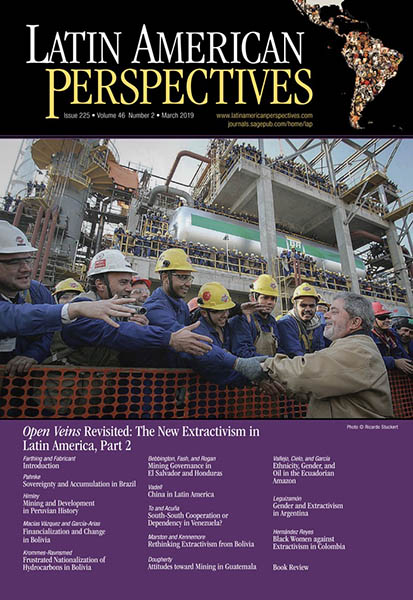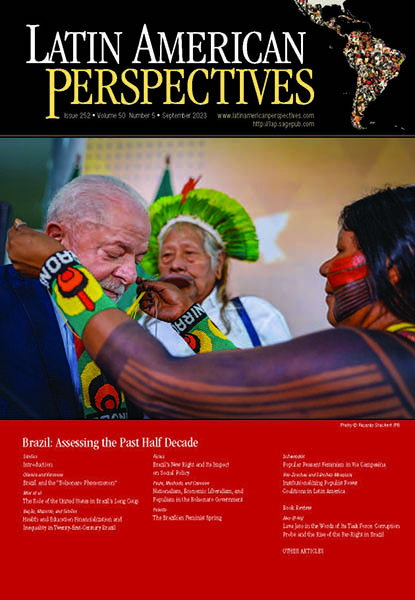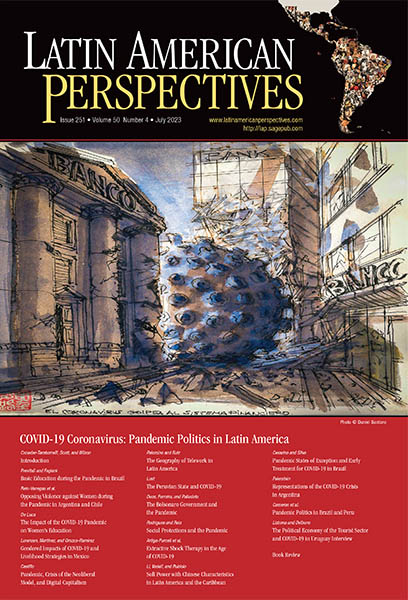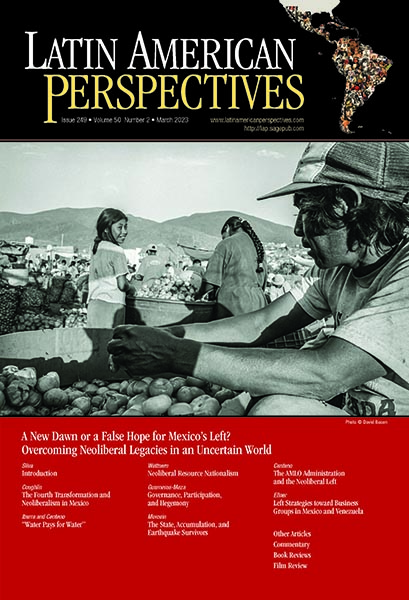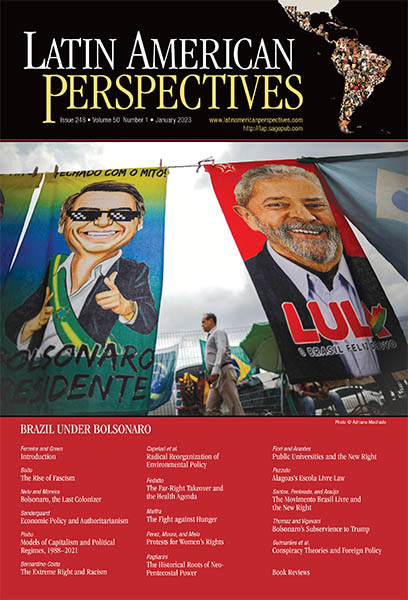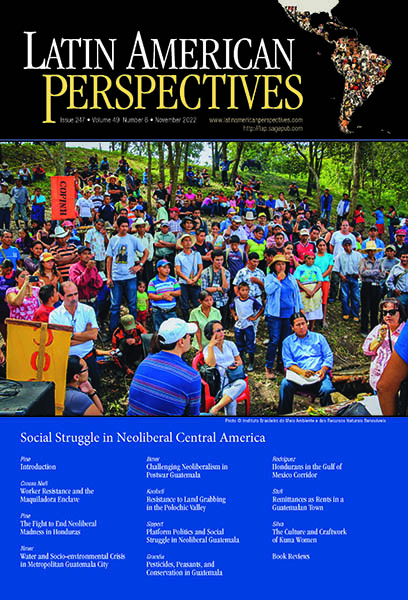This issue continues the examination of the economic, social, and political impacts of expanded extractivism in Latin America and the perpetuation of the region’s role as a raw materials supplier for foreign markets that was started in the September 2018 issue (LAP 45 [5]). With a broad geographic scope and consideration of a wide range of extractive industries from mining and hydrocarbons to soy, it combines critical theoretical insights with rich empirical research into the changing national and transnational structural relationships among governments, resource extracting and financial corporations, and the affected populations. Several articles critically assess the limitations of the extractivist policies of progressive governments. Others analyze the role of China and the actual experience of South-South cooperation. Environmental justice issues and grass roots resistance are also considered with attention to the roles of women, indigenous and Afro-descendent communities.
![]()


